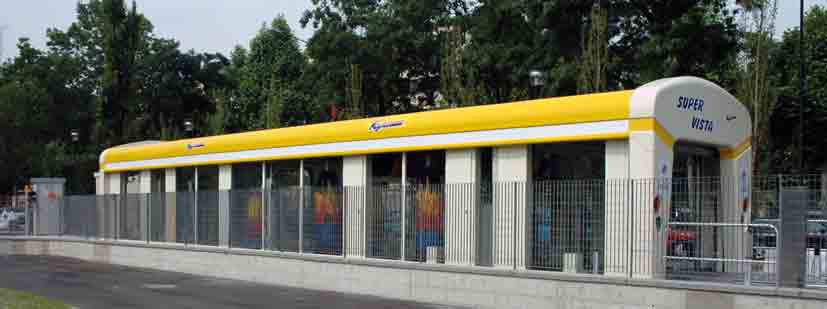China revises electric-car incentives to prize longer ranges

China revises electric-car incentives to prize longer ranges
BYD e5. Photo by CarNewsChina.com.
It’s long been official policy for China that the country’s automakers will become the world’s highest-volume producer of electrical cars.
(It also intends to predominate lithium-ion battery cells and photovoltaic solar panels, for the record.)
But the government policies and incentives to achieve that aim have often switched over the years.
Now it shows up that a proposed formula to prize the country’s makers of plug-in vehicles has been tweaked, to give more prizes to electrified cars with longer battery ranges.
As Bloomberg reported in mid-June, the draft formula from the Ministry of Industry and Information Technology now applies a multiplier so that longer-range cars get more credit points while shorter-range cars receive fewer.
All plug-in cars with a rated range of three hundred fifty km (217 miles) or more on the local test cycle receive the maximum five points, as before.
Aoxin Ibis electrified car. Photo by CarNewsChina.com.
The latest draft retains a kicking off date of next year, despite feedback from automakers that the previous version was overly ambitious.
Automakers are required to obtain a score for so-called Fresh Energy Vehicles of at least eight percent next year under the most latest version of the rules.
A group indicating European automakers operating in China said in a statement that non-Chinese makers should also be eligible for the credits, which it urged should also be applied to imported cars.
As we often do, we reached out to longtime China mitt Michael Dunne, founder of the consultancy Dunne Automotive Ltd., for context.
After looking over the news article, he commented not on the specifics but on the context in which it should be viewed:
Local and central policy makers tell me they will not back off their drive to make Chinese companies world leaders in electrics cars.
Buick Velite five to be sold in China (Chevrolet Volt in North America)
When I met with several officials and industry people in June, they routinely spinned out the (Chinese policy code words) “resolute” and “unwavering” to describe their commitment to EVs.
I believe them. The incentive and quotas, penalties and requirements might switch — but not the aim.
Within that framework, China will proceed to tinker with regulations. The aim is to extract maximum technology commitments from global automakers while also making sure key Chinese firms can also clear the bar and stay rigidly in the game.
Global firms will be tested every step of the way. It is not good enough to be a maker of quality products. If you’re not also tenacious in negotiating, there will be tears before bedtime.
(Did you note how the Germans had nothing to say at this point? They’re huddling—scrambling?—to devise a strong, united response.)
Everything in the People’s Republic starts and finishes with the policymakers, a setup utterly different from our market-based system
China revises electric-car incentives to prize longer ranges
China revises electric-car incentives to prize longer ranges
BYD e5. Photo by CarNewsChina.com.
It’s long been official policy for China that the country’s automakers will become the world’s highest-volume producer of electrified cars.
(It also intends to predominate lithium-ion battery cells and photovoltaic solar panels, for the record.)
But the government policies and incentives to achieve that objective have often switched over the years.
Now it shows up that a proposed formula to prize the country’s makers of plug-in vehicles has been tweaked, to give more prizes to electrified cars with longer battery ranges.
As Bloomberg reported in mid-June, the draft formula from the Ministry of Industry and Information Technology now applies a multiplier so that longer-range cars get more credit points while shorter-range cars receive fewer.
All plug-in cars with a rated range of three hundred fifty km (217 miles) or more on the local test cycle receive the maximum five points, as before.
Aoxin Ibis electrical car. Photo by CarNewsChina.com.
The latest draft retains a embarking date of next year, despite feedback from automakers that the previous version was overly ambitious.
Automakers are required to obtain a score for so-called Fresh Energy Vehicles of at least eight percent next year under the most latest version of the rules.
A group signifying European automakers operating in China said in a statement that non-Chinese makers should also be eligible for the credits, which it urged should also be applied to imported cars.
As we often do, we reached out to longtime China mitt Michael Dunne, founder of the consultancy Dunne Automotive Ltd., for context.
After looking over the news article, he commented not on the specifics but on the context in which it should be viewed:
Local and central policy makers tell me they will not back off their drive to make Chinese companies world leaders in electrics cars.
Buick Velite five to be sold in China (Chevrolet Volt in North America)
When I met with several officials and industry people in June, they routinely spinned out the (Chinese policy code words) “resolute” and “unwavering” to describe their commitment to EVs.
I believe them. The incentive and quotas, penalties and requirements might switch — but not the objective.
Within that framework, China will proceed to tinker with regulations. The aim is to extract maximum technology commitments from global automakers while also making sure key Chinese firms can also clear the bar and stay tightly in the game.
Global firms will be tested every step of the way. It is not good enough to be a maker of quality products. If you’re not also tenacious in negotiating, there will be tears before bedtime.
(Did you note how the Germans had nothing to say at this point? They’re huddling—scrambling?—to devise a strong, united response.)
Everything in the People’s Republic starts and completes with the policymakers, a setup utterly different from our market-based system